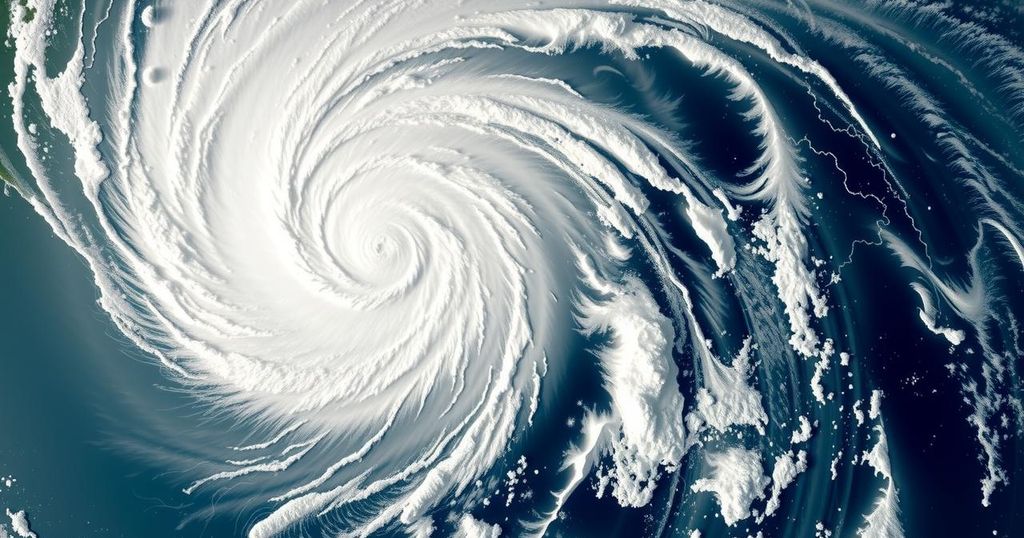Cyclone Chido Approaches: Authorities Prepare for Impact on Comoros, Madagascar, and Mozambique

Cyclone Chido is advancing towards Comoros, Madagascar, Mayotte, and Mozambique, posing significant threats of strong winds and heavy rainfall. Authorities are taking precautionary measures, such as school closures and evacuations. Climate change is intensifying cyclones in the region, raising concerns about flooding and disease outbreaks. Residents are urged to remain vigilant during this cyclone season.
A formidable tropical storm, referred to as Cyclone Chido, is advancing towards the islands of Comoros, Madagascar, Mayotte, and the African mainland, including Mozambique. The cyclone is predicted to bring fierce winds and substantial rainfall, leading to considerable dangers for the affected regions. In response, local authorities in Comoros have mandated the closure of schools as an essential precaution, anticipating the storm’s arrival early Saturday.
Mayotte, a French territory, is currently under heightened vigilance, with the French national meteorological agency issuing a red alert for the area. Mozambique has similarly declared a red alert for its northern provinces, Cabo Delgado and Nampula, representing the possible impact on over 2 million inhabitants. According to the Mozambique National Meteorological Institute, Cyclone Chido could produce winds reaching up to 200 kilometers per hour (124 miles per hour) upon landfall.
Madagascar is also preparing for Cyclone Chido’s impact, with residents receiving warnings to be mindful of safety measures. Evacuations are being executed in the northern Diana region, where the storm’s effects are projected to be the most severe. Since the commencement of the cyclone alert, local authorities have been distributing food and emergency supplies to vulnerable areas.
The French government has initiated the mobilization of resources to support Mayotte in the event of damage inflicted by the cyclone, dispatching emergency personnel and necessary equipment to facilitate rescue and recovery operations. Climate specialists provide cautionary notes that cyclones in this region are intensifying as a result of climate change, with Cyclone Chido posing threats of severe flooding, landslides, and outbreaks of waterborne diseases such as cholera, dengue fever, and malaria.
With the cyclone season now in motion, residents are advised to stay updated and enact suitable measures to ensure their security in the face of impending natural disasters.
Cyclone Chido represents a significant meteorological event, characterized by its potential to inflict extensive damage due to high winds and torrential rain. Understanding the context of previous cyclones and their impact highlights the growing concern associated with such storms in the region. Climate change is influencing cyclone behaviors, making them more destructive. Authorities in affected areas are implementing preventive measures, emphasizing the importance of preparation for communities.
In summary, Cyclone Chido is imposing a grave threat to the islands of Comoros, Madagascar, Mayotte, and northern Mozambique, with anticipated hazardous weather conditions. Authorities in these regions are undertaking necessary actions, including school closures and evacuations, to safeguard citizens. As the cyclone season progresses, continual awareness and readiness are crucial to mitigate potential repercussions as climate change exacerbates the risks associated with such storms.
Original Source: www.inkl.com







